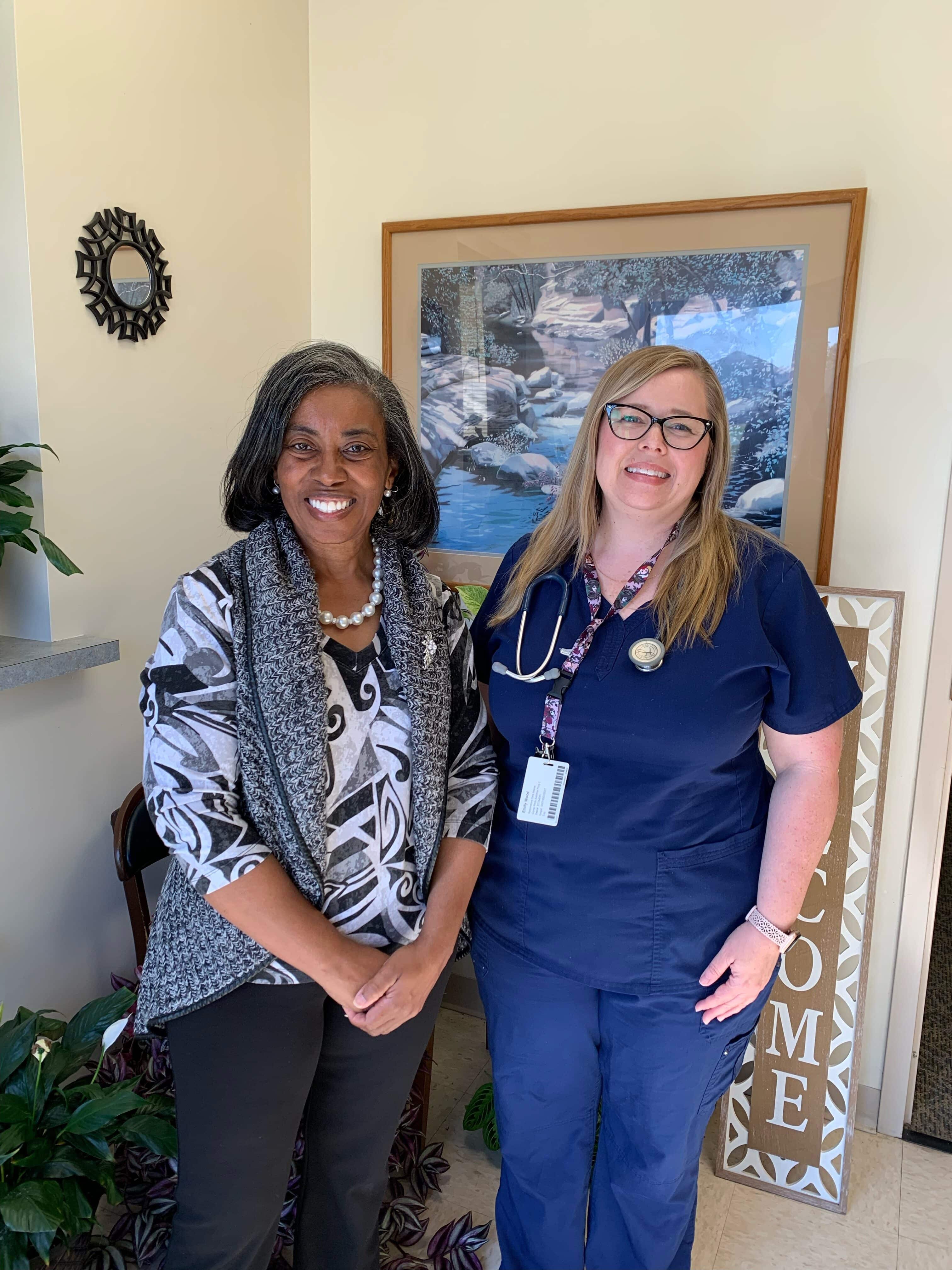As of 2022, approximately 7.3% of children in North Carolina had asthma, according to the National Survey of Children’s Health data. Asthma’s symptoms, including coughing, wheezing, shortness of breath and fatigue, correlates to underperformance and absence from school, difficulty sleeping, long-term structural changes to the lungs, more frequent visits to the emergency department (ED) and more hospital admissions. For parents, the worry of managing their child’s symptoms, as well as the strain on finances and work, increases the burden of care. This is especially true in rural counties, where access to pediatricians and pulmonary specialists is limited. ECU Health’s Pediatric Asthma Program seeks to address these health disparities through a holistic approach, and the Roanoke-Chowan Foundation Grant has provided funding for more than 20 years that supports the program’s mission.
ECU Health’s Pediatric Asthma Program, established in 1995, has grown to provide targeted services in 29 counties across eastern North Carolina, including Bertie, Hertford, Gates and Northhampton. Emily Wood, and a respiratory care manager with the program, serves these rural counties by providing asthma education to children and their families, conducting school visits in collaboration with school nurses, giving out asthma supplies, conducting fractional exhaled nitric oxide (FeNo) or spirometry testing at regular intervals and providing medication support.
The way Wood ensures that happens is by meeting the kids and their parents where they are. “Transportation is a big issue in these areas,” she said.

“Parents have to take time off from work and lose income, and they may not have the means to get to a clinic if it’s 30 or more minutes away. Other counties have access to a primary care physician (PCP) clinic or a hospital, but here we don’t have that close by. We had three pediatricians but one just retired, and these kids must find somewhere else to go.”
Wood said she has worked with her team to secure new physicians for these displaced children so they keep up on their regular checkups. In the meantime, this shortage makes it all the more important for her to see these children virtually, at their homes or at their schools to bridge the gap. “Some of the kids with more severe cases I’ll have to follow more closely, since it’s hard for them to get into a PCP office,” she said.
“Emily knows this area, understands the patients’ unique needs and spends countless hours partnering with community stakeholders and fighting for the well-being of the patients and their families that she cares for,” said Sue Anne Pilgreen, manager of the Pediatric Asthma Program.
The Roanoke-Chowan Foundation, founded in 1997, has helped Wood and the program’s team achieve their objectives by providing grant support. The Foundation’s mission is to meet health and wellness needs of the Roanoke-Chowan communities in Bertie, Hertford, Gates and Northampton counties through grants, and since 1998, the Foundation has given more than $15.2 million in more than 100 grants to local organizations, including ECU Health Roanoke-Chowan Hospital and the ECU Health Wellness Center – Ahoskie. This year, the Foundation granted the Pediatric Asthma Program nearly $65,0000.
ECU Health’s Pediatric Asthma Program has received grant funding from the Foundation for more than 20 years, without which, Wood said, she would not be able to provide her services to those counties. “The Foundation money eliminates barriers by allowing me to travel to patients’ homes, schools or meet with them virtually,” she said. It also allows her to provide customized services that meet the patients’ needs, including providing asthma supplies such as spacers, pillow and mattress encasements to reduce allergies and asthma-friendly cleaning supplies.
That’s a big deal, because when a child with asthma has an exacerbation, the only option for some families is to call an ambulance and go to a hospital – an added cost of money and time the families often can’t afford. Wood said she can often catch issues in their early stages and keep kids out of the hospital or even the doctor’s office. “There’s a high level of low income in this part of the state, and these are the patients who would otherwise fall through the cracks,” Wood said. “This funding allows me to do testing and check in on the kids. It’s important to make sure they have what they need.”
“For many years, the Roanoke-Chowan Foundation grant has provided funding that has played a pivotal role in meeting the pediatric needs for children living in Hertford, Gates, Bertie and Northampton counties,” Pilgreen added. “These are some of our most rural areas and having a dedicated respiratory care manager for those counties, and the funds to provide children with the supplies they need to better manage their symptoms, has been a game changer. Our partnership with the Foundation helps me breathe a little easier, because I know the board members genuinely care about their region and will do whatever it takes to ensure the health and wellness of the children living there.”
Resources
Pediatric Asthma Program
Maynard Children’s Hospital
Allergy & Asthma Services
